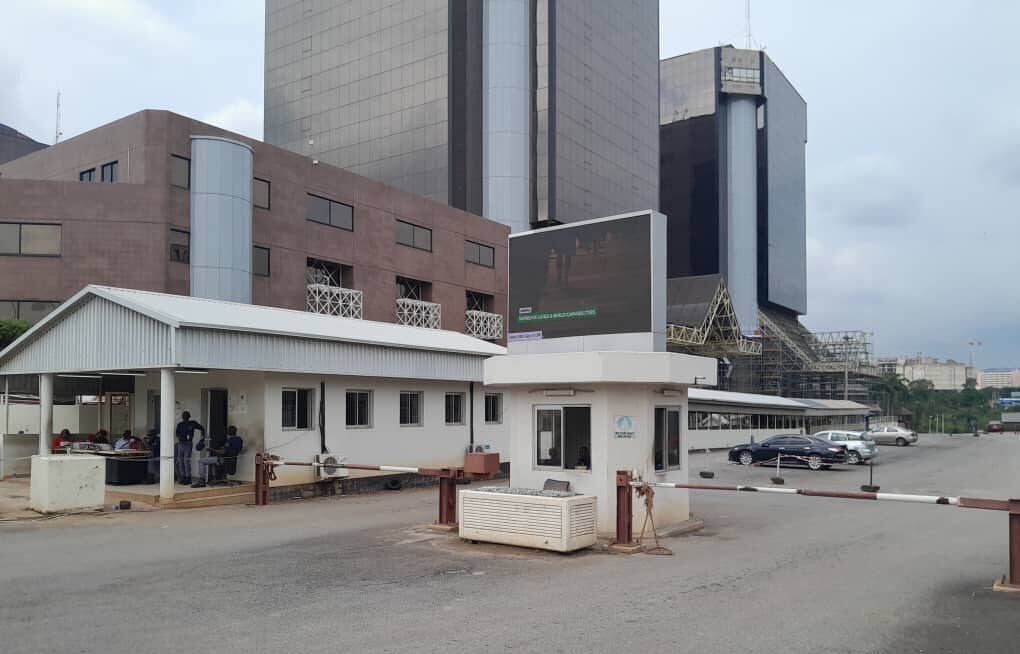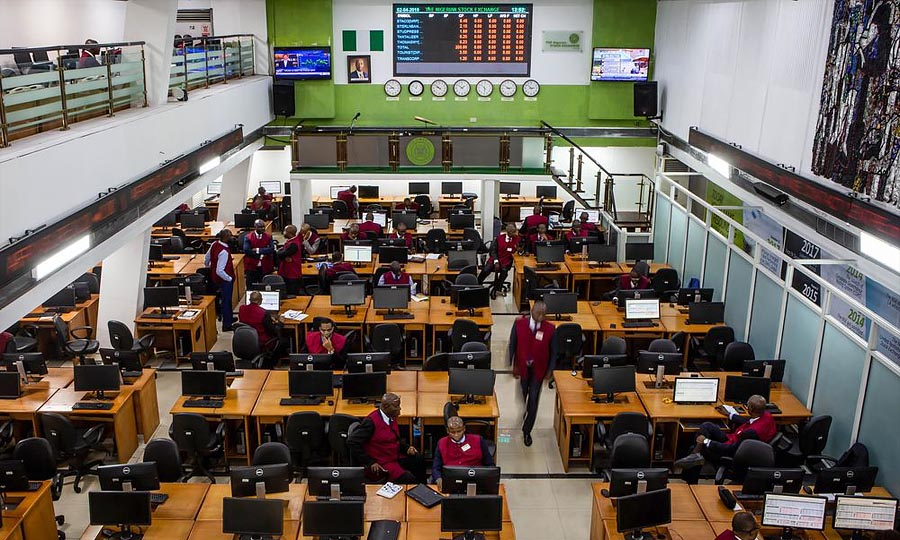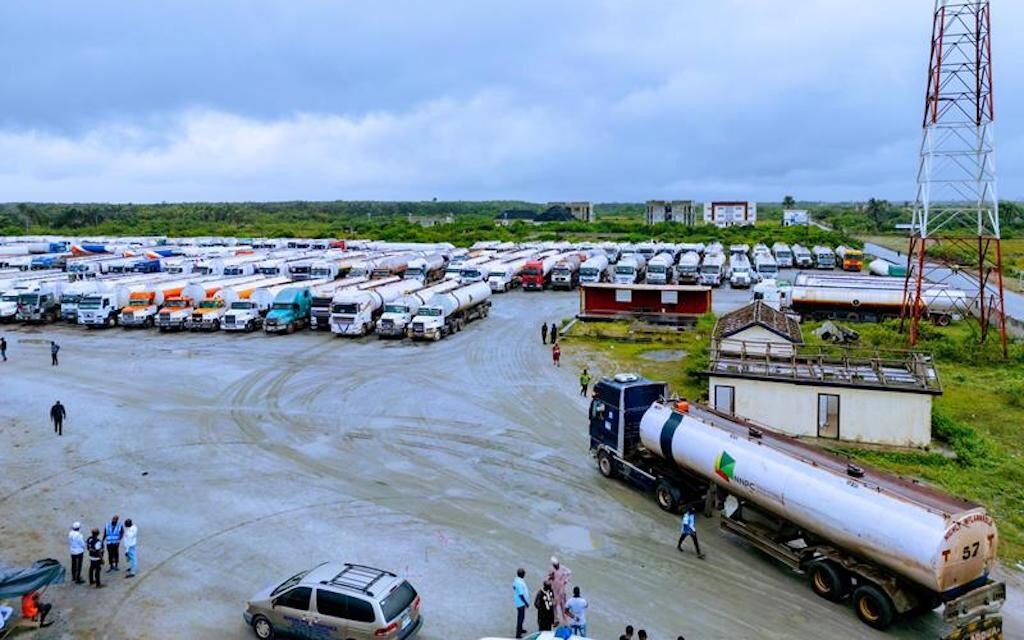• Lauds Afreximbank’s PAPSS
Bolaji Adebiyi, in Algiers
Ongoing tariff wars and protectionist policies have made it necessary for Africa to accelerate its integration, the Comptroller-General of the Nigeria Customs Service, Mr Bashir Adewale Adeniyi, has said.
He spoke at the 4th Intra-African Trade Fair (IATF), which was entering its third day in Algiers, Algeria, and praised the Afreximbank, one of the organisers of the continent’s largest trade summit, for the development of the Pan-African Payment and Settlement System (PAPSS), which he stated had transformed the payment system in Africa.
Speaking on the theme, ‘Positioning African Exporters at the Forefront of Global Trade’, the Nigerian Customs boss also highlighted six strategic steps, he said, that could reposition African exporters for greater impact on the global stage.
Adeniyi, also the World Customs Organisation’s chairperson, examined the challenges affecting African trade, including inadequate infrastructure, fragmented payment systems, limited market access, and trust deficits.
He concluded that these were fundamental weaknesses requiring coordinated action by stakeholders to resolve.
These challenges, coupled with the ongoing global tariff wars and protectionist policies, present a compelling case for Africa to accelerate its internal integration, both as a defensive strategy and a catalyst for growth,
He lamented that Africa’s 1.4 billion people, 17% of the global population, contribute only 3% to world trade, with intra-African trade representing 15% compared to 60% in Europe and 50% in Asia.
The Nigerian Customs boss, however, noted that Africa had not been a passive observer of these challenges, as there were active and commendable efforts to address them.
He commended Afreximbank for the innovative PAPSS, launched a few years ago, highlighting that it enables payments in local currencies across the continent and could save Africa $5 billion annually in transaction costs.
“PAPSS now connects Central Banks across several regions, with 25 major commercial banks integrated,” he emphasised.
He also commended the Women Exporters in the Digital Economy (WEIDE) Fund recently launched in Nigeria by the World Trade Organisation (WTO) and the International Trade Centre, which aims to support women-led businesses in export development.
“Our experience with Nigeria Customs confirms that when systemic barriers are removed and targeted support is provided, women-owned businesses don’t just participate in export markets, they often surpass expectations, bringing innovative approaches that benefit the entire supply chain,” he stated.
Adeniyi stated that other initiatives, including the Africa Continental Free Trade Area (AfCFTA), the largest free trade area since the WTO, along with innovations like PAPSS, have created unprecedented opportunities for African exporters to reposition themselves on the global stage.
He stated that, as chairperson of the World Customs Organisation, which represents 186 Customs administrations and manages 98% of global trade, he could confirm that African Customs modernisation was progressing rapidly.
He explained that through the EU-WCO programmes, most African countries have adopted the Harmonised System 2022.
According to him, “We have trained over 4,300 trade practitioners across the continent, and we have certified 40 master’s trainers, spreading trade facilitation knowledge from Cairo to Cape Town.
“Moreover, there has been a strategic commitment by the WTO and AfCFTA Secretariat, through the MoU signed in 2022, which aimed to harmonise Customs procedures that directly support continental trade integration.”
He said all these initiatives were commendable because they offered hope that efforts were being made to address some of the structural bottlenecks faced when conducting intra-African trade, urging stakeholders to do more to reduce the challenges within the short to medium term to swiftly improve the flow of trade across the continent.
He outlined six steps, he said, that could strategically reposition African exporters to make an optimal impact on the global trade stage, including simplification of customs procedures, establishing trust, digital integration, adoption of technology, youth empowerment, and women’s empowerment.
Adeniyi stated that Customs must simplify their procedures to increase trade volume, explaining that complex processes hinder export ambitions.
“Streamlining export procedures is crucial so that what used to take weeks can now take days, and what took days can now be accomplished in a few hours. We must establish green channels for trusted exporters to reduce processing times, ensuring products do not accumulate demurrage but move swiftly to the international market,” he stated.
He emphasised the need for a trust network, explaining that lessons from Nigeria’s authorised economic operators’ programmes implementation showed the importance of developing a continent-wide network of trusted exporters.
“Trust is the currency of international trade, and we must make African exporters very rich in trust,” he pointed out.
He made the case for digital integration to achieve a continental reach, arguing that the revolution was already underway and actively engaging strategically.
He stated that Nigeria was creating seamless connectivity between exporters and relevant government agencies through integrated digital platforms and the national single window initiatives.
“The vision is very straightforward: an exporter in Kano, Nigeria, should be able to clear a shipment to Kampala, Uganda, using the same digital interface they use for exports to London or other European countries,” Adeniyi stated, revealing that by Q1 of 2026, Nigeria will come onboard the WTO-promoted digital tool.
The World Customs boss stated that modern technology, including Blockchain, AI, and data analytics, offers vast opportunities to expand and connect African businesses, encouraging African exporters to adopt these tools to compete on equal footing with established global players.
Saying Africa’s youth demography was a secret weapon, Adeniyi stated that youth power represented a major export power.
He stated: “Our demographic dividend is our secret weapon in Africa. Our young, increasingly skilled population brings fresh perspectives and digital native approaches to export markets. Deliberate efforts must be made to build export strategies around youth engagement and create pathways for young entrepreneurs to access global markets with unprecedented ease.”
Regarding women, he said: “We need to unleash the women’s export potential, recognising that women exporters often outperform when barriers are removed, creating dedicated pathways and support systems that tap into this probing competitive advantage is a must for us in Africa.”
The post Adeniyi Urges Faster Integration, Outlines Measures to Reposition African Exporters appeared first on THISDAYLIVE.



